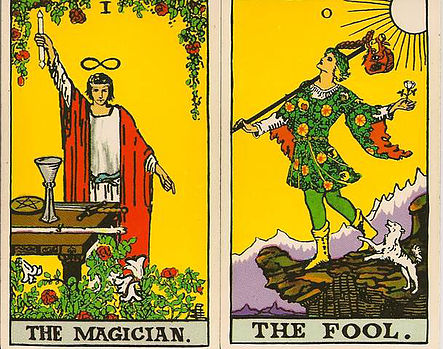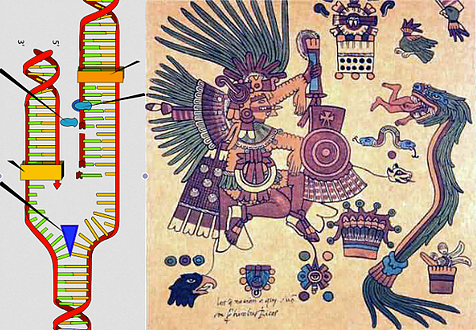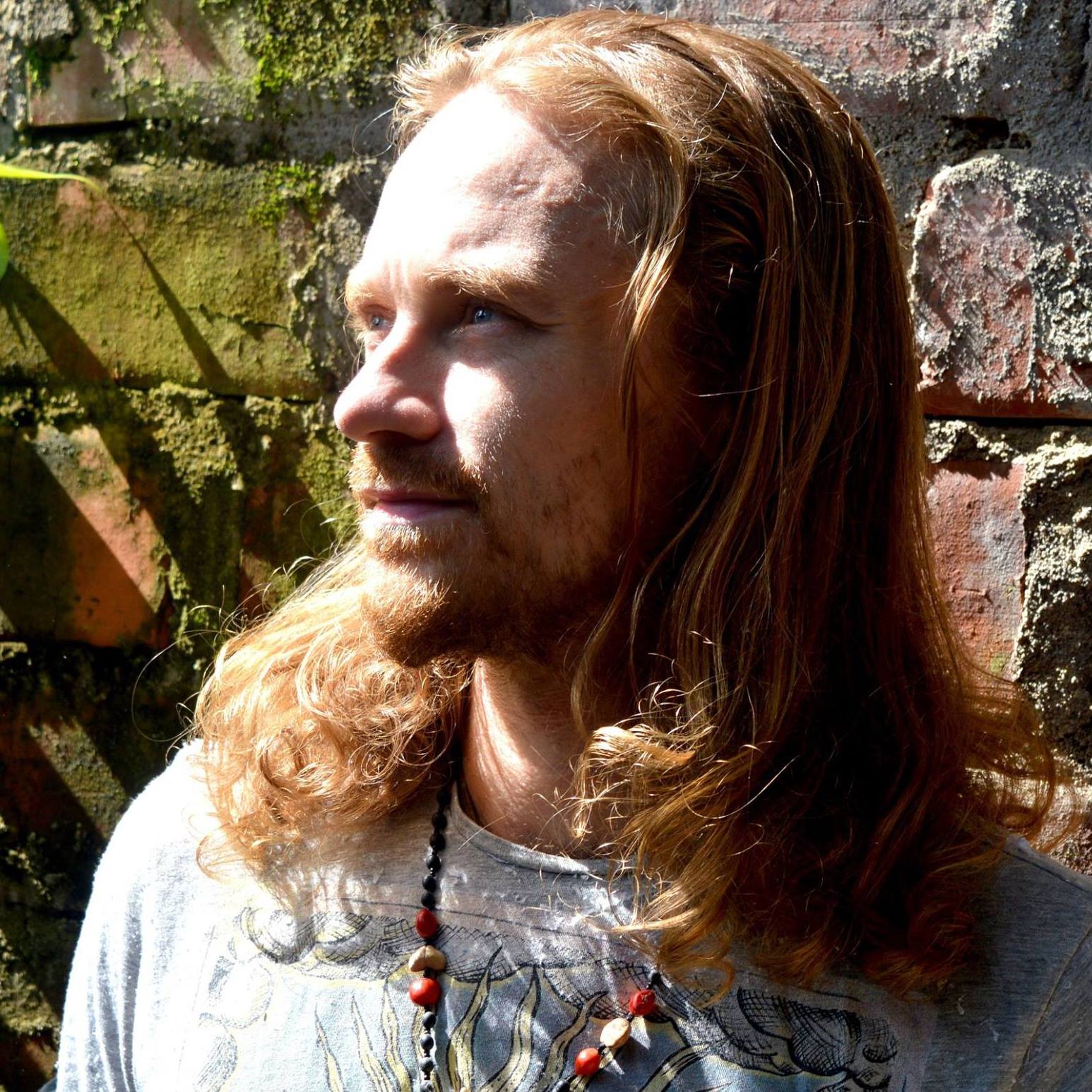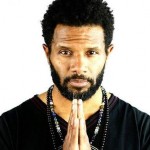
“We do not “come into” this world; we come out of it, as leaves from a tree. As the ocean “waves,” the universe “peoples.” Every individual is an expression of the whole realm of nature, a unique action of the total universe.” -Alan Watts
I’ve always loved the works of Alan Watts. For a beginner, his writings and personality entice the mind and draw it further into curiosity. This is integral for those trying to find some sort of foundation in Zen. Many Eastern philosophical concepts are difficult for beginners to grasp. There are countless pop cultural myths about spiritual tradition that require a fair amount of reconditioning to reverse. True understanding takes work. Most importantly, it takes daily meditation practice.
Today I’d like to take some time to delve into one of Watts’ favorite concepts— emergence. I’ve decided to call it this after listening to dozens of speeches in which Watts outlines his belief in this concept. It’s the simple idea that, instead of being dropped into the world like an alien, we emerge out of the world as an integral expression of it. We’re a reflection of it, not a product of it. Your initial reaction to this might be, “Duh,” but I think you’ll find it’s an interesting thing to get into. We reflect natural reality and when we deny this reality we deny life.
I find emergence particularly important to think about at this point in history, when man finds himself pitted against nature in a weird technological battle for progress, change, and ‘disruption’. Startups, for example, use the term ‘disruptive’ to describe companies and innovations that are shaking things up and changing the playing field. To merely shake things up is perceived as beneficial, like a toddler tossing sand around on a playground. Rarely is this credo ever questioned. This represents, for me, the crux of a modern technological battle against nature. That which is most disruptive is perceived as beneficial, while that which is understated, simple and peaceful is considered useless or boring. Serenity is overlooked because it doesn’t cause a stir. This is because the cult of progress relies on this concept of man vs. nature. It relies specifically on a false sense of conflict between these two entities that are in reality one and the same. Scientific progress is viewed as a battle against mankind’s natural assailants. Anything that controls us or holds us back is viewed not as a sacred force to be respected but instead as a challenger to be overcome.
When we feel separate from nature, as if we have ‘come into’ this world as a foreign agent, we quite literally begin to feel like aliens. This is where I see the concept of “alienation” begin to emerge. When work becomes about abstracted processes, machinery, numbers and middle-managing, humans feel differently than when work is about respectfully cooperating with nature to accomplish some sort of goal. The further your work is removed from nature, the more prone you are to feeling alienated. Seeing as most people today are not foraging for food, building shelters, farming wheat or hunting animals, we feel varying degrees of alienation every day. The more we take mere survival for granted, the less we respect nature.
When people feel alienated, they get anxious. They get depressed. They feel wholly responsible for themselves and thus the cult of individuality emerges. This causes internal strife because people are not wholly responsible for themselves. It’s not optimal for everyone to think that they can do whatever they want or be whoever they want. Working with nature means working with what you’ve got and respecting your place, not denying it in favor of some sort of ego projection or cultural identity. In recognizing yourself as in-and-of nature rather than as a product of it, you take full responsibility for your circumstances and can be honest with yourself. Trying to find balance and harmony makes life peaceful. Trying to find opportunities to exploit and ways to “change” the world makes life chaotic and artificial.
When nature feels distant and oppositional, people start to think of themselves as gods. They believe that their reality is whatever they decide it is; meanwhile nature is still operating all around them and through them. The truth exists always, but through a sheer lack of wisdom or humility people put their blinders on. This dissonance creates psychological conflict and difficulty. I truly believe that most of the psychological problems that have come to accompany modernity are the result of our feeling completely alienated from the natural world. We may suffer less at the hands of nature, but this lack of suffering has also been accompanied by a lack of willingness to understand ourselves.
When we ‘return’ to nature, we return to our fundamental essence. Like Watts said, we recognize that it is us and we are it. We cannot escape the deep truths of nature. We recognize that maybe barreling forward at any cost is probably not the best way to approach things. In overcoming this sense of natural alienation, we acknowledge that it’s OK for things to operate harmoniously. Humans shouldn’t attempt to “come out on top” because this is an impossible task. People only feel a need to “disrupt” when they are dissatisfied. To attempt disruption is to attempt to overcome or transcend that of which you are an integral part. This is a life-denying act. There is no escaping nature. Even if Earth becomes uninhabitable and we all blast off into space colonies we’re still subject to deep universal laws that we don’t truly understand.
This is where I ask you to simplify your life and make peace with nature. Our ancient ancestors understood the importance of this, but we seem to have forgotten it. Being perpetually dissatisfied with your conditions is a choice and leads to constant struggle and egoism. Finding peace, gratitude and solace in simply being alive leads one towards peace, stillness, and natural balance. Personally, I find exercise, hiking and meditation help me connect with nature and respect it. The key is not to challenge nature as a zealous alien warrior, but instead to respect and work gratefully with nature as a guest or disciple.
 Charlie Ambler is the creator of The Daily Zen and @dailyzen on Twitter. He began the site in 2008 as a way to chronicle his study of Zen and practice of meditation. He is currently working on raising enough funding to work on Daily Zen full-time and is also writing a book about Zen practice and contemporary life. Charlie live in Greenpoint, Brooklyn and enjoys playing drums, walking, and petting other peoples’ dogs. You can support his work by clicking here.
Charlie Ambler is the creator of The Daily Zen and @dailyzen on Twitter. He began the site in 2008 as a way to chronicle his study of Zen and practice of meditation. He is currently working on raising enough funding to work on Daily Zen full-time and is also writing a book about Zen practice and contemporary life. Charlie live in Greenpoint, Brooklyn and enjoys playing drums, walking, and petting other peoples’ dogs. You can support his work by clicking here.










 Jason Hairston is an international healer and spiritual teacher who incorporates techniques through speaking, energy healing and self mastery coaching. He is very passionate about helping people by providing necessary tools for personal evolution. Everything he shares is based on the foundation of love and freedom. His passion is projected through his unconditional love and service for people. He is available for personal sessions, workshops and speaking opportunities. You can find out more about him on his website
Jason Hairston is an international healer and spiritual teacher who incorporates techniques through speaking, energy healing and self mastery coaching. He is very passionate about helping people by providing necessary tools for personal evolution. Everything he shares is based on the foundation of love and freedom. His passion is projected through his unconditional love and service for people. He is available for personal sessions, workshops and speaking opportunities. You can find out more about him on his website 





